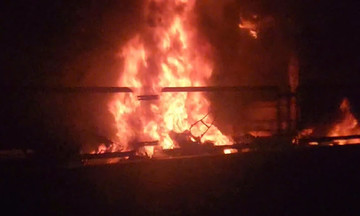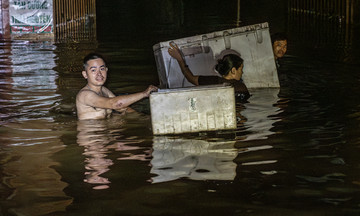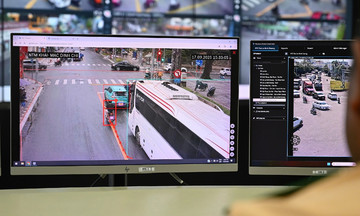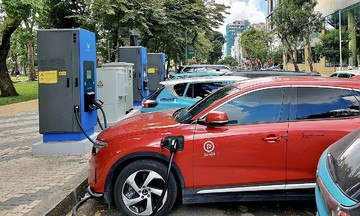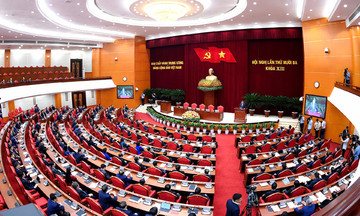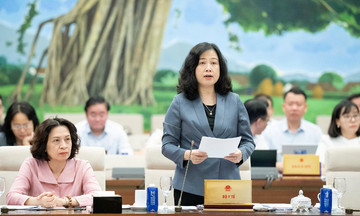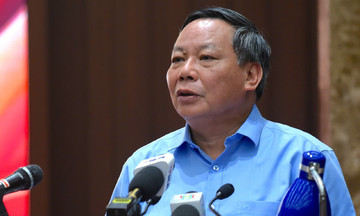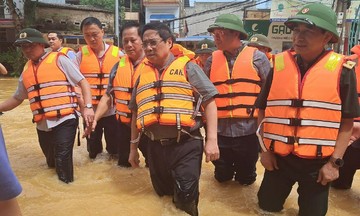Public schools permitted to teach some subjects in foreign languages.
Decree 222/2025, effective from 25/9, stipulates that public schools from primary to high school levels are permitted to teach certain subjects in foreign languages, prioritizing math, science, and computer science. The decree encourages schools to apply information technology, artificial intelligence, and digital transformation in teaching and learning these subjects. Tuition fees will be based on the principle of accurate calculation, cost recovery, and student consent, following regulations set by provincial People's Councils.
Similarly, at the university level, teaching and learning in foreign languages can be applied to part or all of a program. Curricula and materials will be approved by the university president. Universities will proactively determine tuition fees based on autonomy, student affordability, and relevant laws and regulations.
Last august, the Politburo requested all levels to improve students' foreign language proficiency, gradually making English a second language in schools. The Ministry of Education and Training aims to have all high school students learning English as a second language by 2035, at levels 1, 2, and 3. At the university level, the target is levels 4, 5, and 6.
Also, according to Decree 222, foreign language teachers at primary and secondary school levels must achieve at least level 4 (B2 in English) according to the 6-level foreign language proficiency framework for Vietnam, or equivalent. High school, vocational, and university teachers have a higher requirement – at least level 5 or 6 (C1).
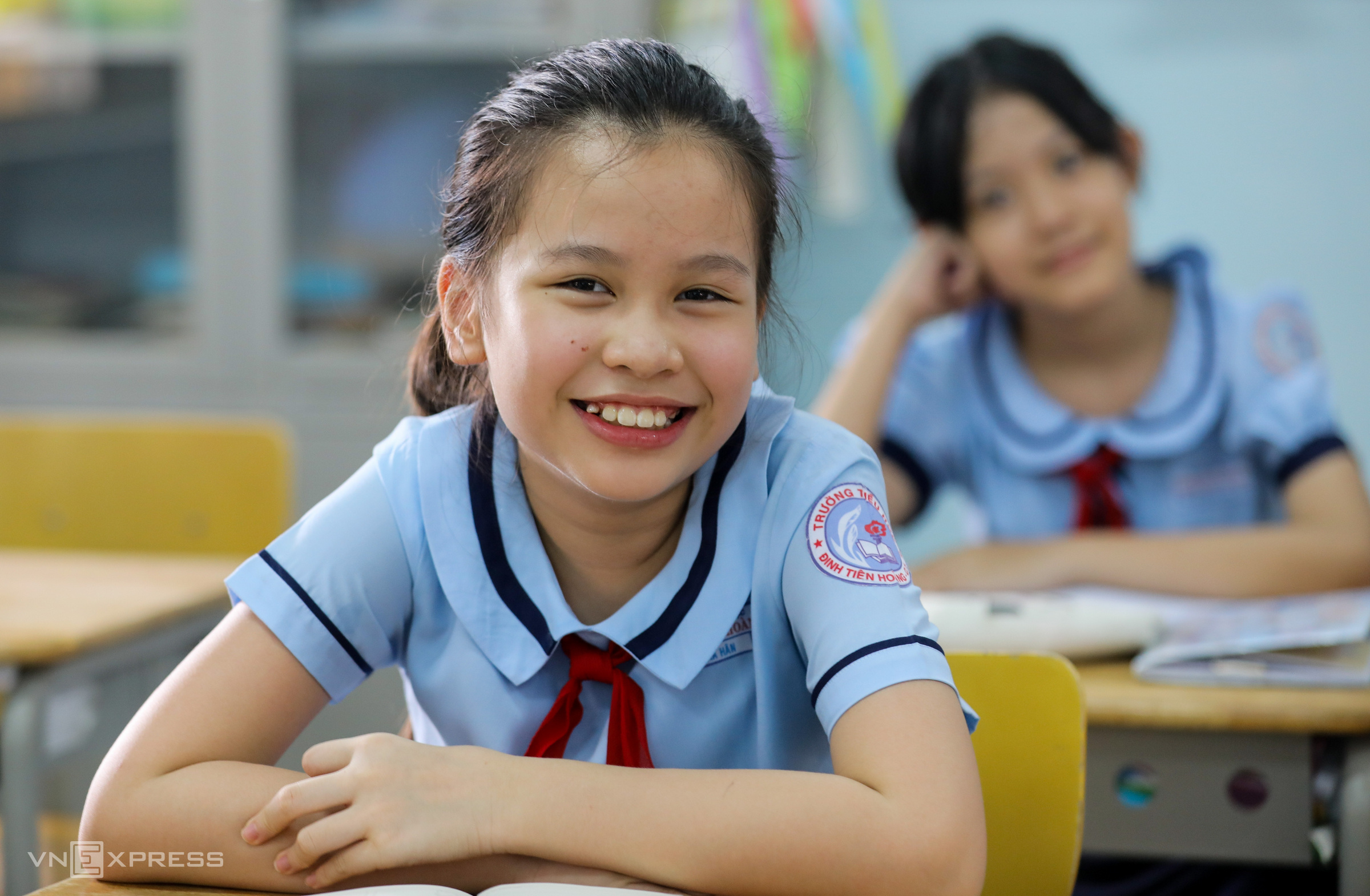 |
Elementary school students at Dinh Tien Hoang (former District 1) Ho Chi Minh City. Photo: Quynh Tran |
Elementary school students at Dinh Tien Hoang (former District 1) Ho Chi Minh City. Photo: Quynh Tran
Facilitating driver training with electronic cabins.
Effective from 1/9, Circular 14/2025 from the Ministry of Construction details training for motorbike and car drivers and the issuance of certificates of knowledge of traffic laws.
One new regulation concerns the use of electronic cabins. Previously, students could only use cabins after completing the theory section. However, under the new regulation, students can use electronic cabins immediately after completing the theory section (including the engine start and stop procedures). This allows centers to manage cabin usage more effectively, reducing pressure on equipment investment, especially in centers with a large number of students.
In addition, Circular 14 also adjusts regulations on highway driving practice. Previously, students were required to practice on actual highways, but this presented difficulties in localities without highways. The new circular allows this training to be conducted through simulations in electronic cabins or on actual highways if locally available. However, centers must still ensure the required hours and kilometers of road training, and all training time and routes must be monitored through the Ministry's system.
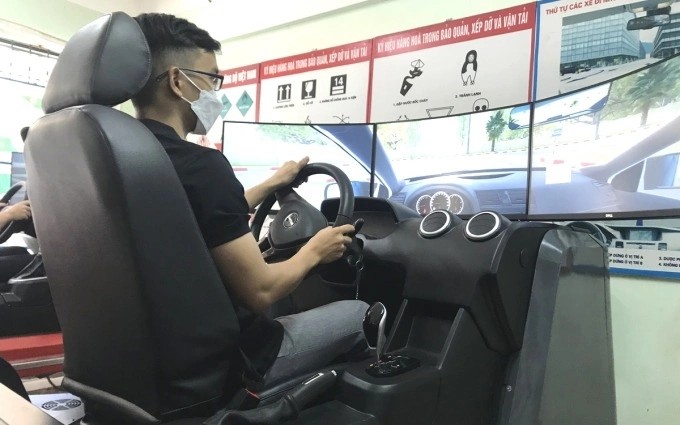 |
Driving simulator cabin at the Fire Prevention and Fighting University's Training and Testing Center. Photo: Anh Duy |
Driving simulator cabin at the Fire Prevention and Fighting University's Training and Testing Center. Photo: Anh Duy
Startups benefit from new innovation policies.
The government issued Decree 210/2025 on investment in small and medium-sized innovative startup businesses. This new document aims to address obstacles that have existed for 7 years and create a more open legal framework for capital mobilization and management of startup investment funds.
The decree stipulates that innovative startup investment funds can have from 2 to a maximum of 30 contributing members, instead of the previous strict limit. This is an opportunity for not only organizations and businesses but also individuals, experts, and scientists to participate, thereby attracting diverse resources for the startup ecosystem.
Funds can receive contributions in the form of money, assets, technology, intellectual property rights, and other legal assets. This new regulation is considered practical, as many founders hold core technologies or valuable intellectual property but have difficulty accessing cash capital.
The decree also allows funds to deposit unused capital in savings accounts to ensure liquidity. At the same time, it requires funds to separately account for assets, contributions, profits, and expenses to ensure transparency, protect investor rights, and enhance credibility.
Regulations on repurposing national defense works for socio-economic development.
Decree 213/2025, effective from 15/9, regulates the protection of national defense works and military zones, detailing procedures for converting their use for socio-economic development.
For military zones where land areas within the national defense land use plan are transferred to localities as approved by the Prime Minister, the Ministry of National Defense will make the decision. If the Ministry of National Defense disagrees, the provincial People's Committee is responsible for reporting to the Prime Minister for consideration and decision.
For national defense works, the Ministry of National Defense decides on the repurposing of these works. In case of disagreement, the Ministry of National Defense will submit a report to the Prime Minister for review and decision. Before repurposing, the Minister of National Defense decides, or delegates the authority to decide, on removing the national defense works or military zones from the asset register.
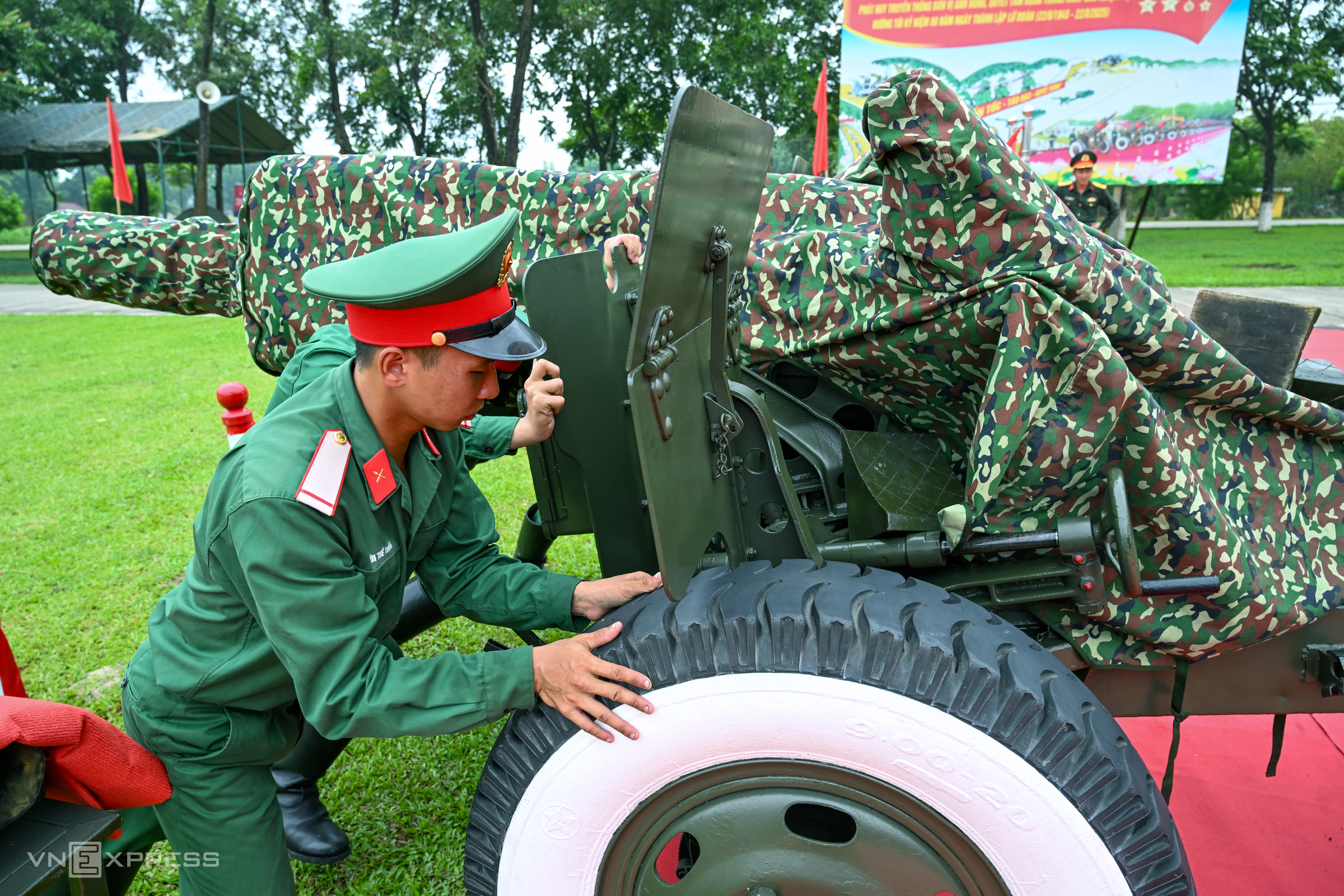 |
Soldiers training at Artillery Brigade 45. Photo: Giang Huy |
Soldiers training at Artillery Brigade 45. Photo: Giang Huy
Investment incentives for supporting industries.
Decree 205/2025, effective from 1/9, adds policies to promote the application, transfer of technology, and human resource training in supporting industries.
Accordingly, organizations and individuals participating in research, technology transfer, and innovation in the production of supporting industry products on the Priority List will receive incentives from the National Technology Innovation Fund, the National Fund for Science and Technology Development, the National High-Tech Development Program, and related programs.
In addition, research and technology transfer cooperation projects between businesses and science and technology organizations will receive up to 50% funding support for machinery and equipment, prototypes, software, training, consulting, inventions, and intellectual property. Activities to improve the quality of experts and consulting units in the field of technology will also receive up to 70% funding support.
Regarding human resource training, the Decree adds regulations on supporting domestic and international training and development costs for excellent students, lecturers, researchers, technicians, and technical workers in the field of supporting industry product manufacturing. Support will come from the Supporting Industry Development Program and other human resource training programs.
Son Ha



